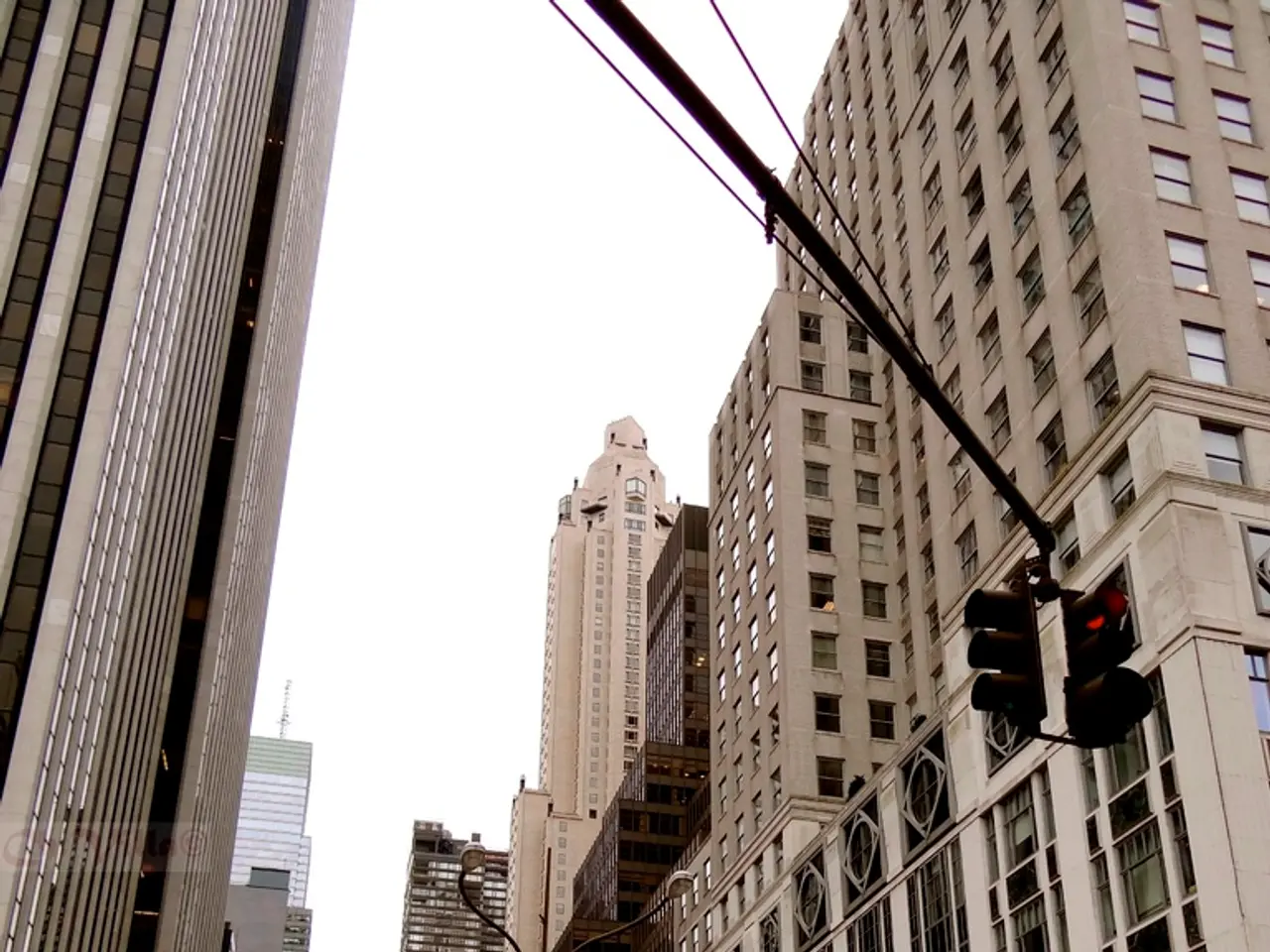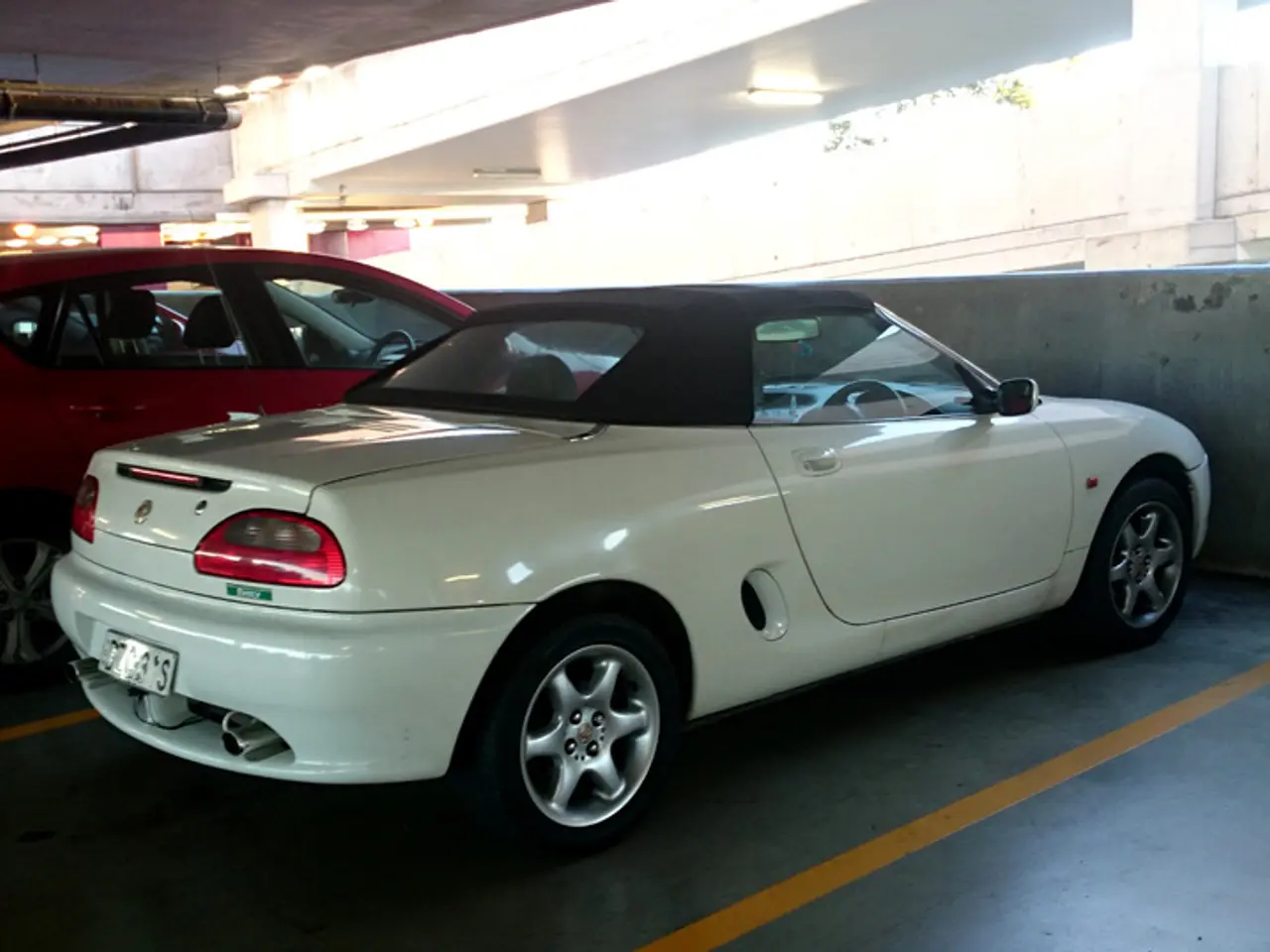Low-Emission Zones in Spain Cover an Area Equivalent to Approximately 100,000 Football Fields
In a significant stride towards combating air pollution, Spain has been actively implementing Low Emission Zones (LEZs) in its major cities, with Madrid, Barcelona, Valencia, and Seville leading the way. As of January 1, 2023, these cities have banned older and more polluting vehicles from city centres, with foreign vehicles also subject to these restrictions [3].
The momentum towards expanding LEZs has accelerated dramatically, with over 150 municipalities aiming to establish their own local vehicle restrictions by the end of 2025, primarily targeting diesel vehicles [1]. Cities like Madrid, Getafe, Huelva, Las Palmas, Estepona, Palma de Mallorca, and Cuenca are progressively restricting diesel cars with certain environmental labels to reduce pollution, with timelines extending up to 2038 in some cases.
However, approximately 30 provincial capitals, including Valencia, Murcia, Las Palmas de Gran Canaria, Vitoria, and Granada, have yet to implement their LEZs due to a lack of resources [2]. Despite this, many of these cities are actively preparing to introduce restrictions throughout 2025 and beyond. The national policy strongly favours rapid expansion and tightening of LEZs across Spain's urban areas [1][3].
Cities with active LEZs, such as Malaga, A Coruña, Córdoba, Bilbao, and Zaragaza, have already made significant improvements in air quality. These zones aim to restrict the circulation of the most polluting vehicles, with vehicles without an environmental label A usually prohibited from accessing LEZs during active hours [4].
To facilitate access to vehicles with the latest technologies and environmental labels that allow unrestricted access to LEZs, car subscription services offer options like the light hybrid Dacia Jogger (ECO label), a light hybrid Renault Captur (ECO), and a pure electric Renault 5 (CERO label) [5].
The environmental labels for vehicles in Spain are A, B, C, ECO, or ZERO, with A being the least polluting and ZERO representing vehicles with zero emissions [4]. The average age of passenger cars in Spain is 14.5 years, indicating a need for more stringent vehicle regulations and the promotion of cleaner, more efficient vehicles [6].
In summary, by January 1, 2023, major Spanish cities already had active LEZs. More than 150 municipalities are planning to implement LEZs by the end of 2025. Even cities previously without LEZs are preparing to introduce vehicle restrictions, especially on diesel vehicles, within the next few years. The national policy strongly favours rapid expansion and tightening of LEZs across Spain's urban areas. Thus, the current status is one of rapid growth and near-universality of LEZ implementation in Spain, with virtually all cities expected to have LEZs or similar restrictions soon if not already in place by mid-2025 [1][3].
- In a bid to support the expansion of Low Emission Zones (LEZs), car subscription services in Spain provide options like the light hybrid Dacia Jogger (ECO label) and the zero-emission Renault 5 (CERO label), encouraging the use of cleaner, more efficient vehicles.
- To combat air pollution and climate-change, the Spanish industry has been investing in environmental-science, developing various labels for vehicles, such as A, B, C, ECO, and ZERO, with A being the least polluting and ZERO representing vehicles with zero emissions.
- As the automotive sector embraces the shift towards cleaner technology, finance plays a crucial role in facilitating the transition by providing accessible financing options for the purchase or subscription of vehicles with environmental labels.
- With transportations and public-transit systems also undergoing transformations to reduce carbon emissions, it is essential for Spain's science and finance industries to collaborate in developing and implementing innovative solutions to combat climate-change and improve the environment.
- In light of Spain's ongoing commitment to combating air pollution, it is crucial for the government and other stakeholders, including the fashion industry, to work together to promote sustainable fashion practices, as the transportation sector alone accounts for only a portion of the country's carbon emissions.




